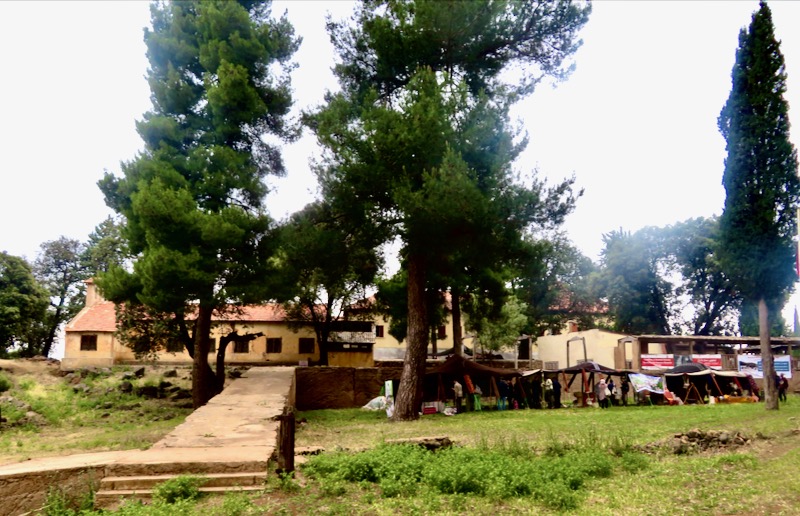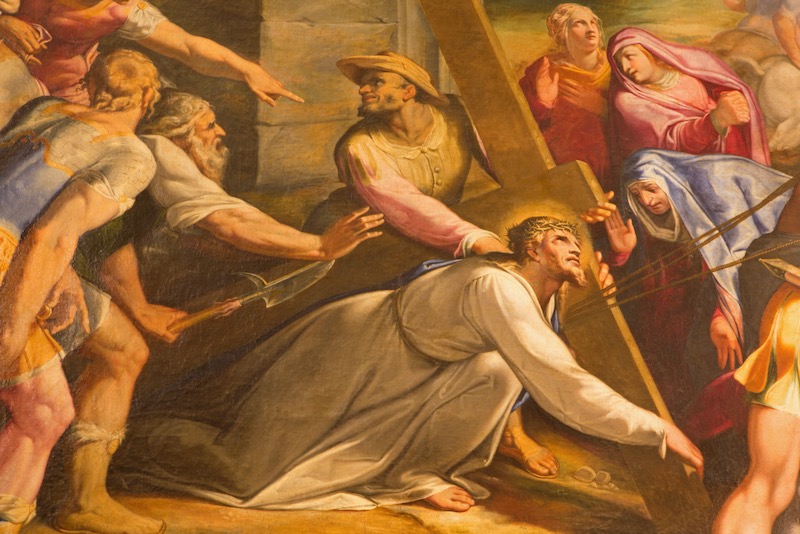Sometimes I wonder whether we make too little of it when toddlers fall over. “Up you get!” we say cheerily, helping the small person to stand up again, rubbing whatever bit they landed on, and immediately grabbing some distraction. We tend to think that because they are nearer the floor in the first place, it doesn’t hurt as much to fall, and at least they aren’t so tied up with trying to project competence, so they don’t feel as badly about it. I worry that it possibly hurts just as much, but at least they recover more quickly and luckily completely, because their bones and cells are still growing vigorously. I think what looks like adult callousness is probably post hoc justification to make the adults feel better about not preventing a child’s fall, not being able to provide total protection. If only.
Falling as an adult is supposed to be more traumatic. Adults do fall from a greater height. And it’s more of a shock, presumably because falling is something you stop doing as much once you are past the toddler stage. I am, as we say in this family, dysclumsic, but I don’t actually fall over very often. It certainly feels more dangerous and potentially devastating, especially as you get older. People with osteoporosis are frighteningly at risk from a minor fall, like haemophiliacs. Luckily I have strong bones, but I have fallen over a couple of times recently, and it makes you think. One of the hard things about getting older is that your body is not still growing like a child’s, so when you hurt yourself, you may never get back the range of movement or the ease which you had previously. That’s a hard thing to be resigned to.
There’s so much cultural baggage around falling over. From Satan’s fall to Adam’s fall, the fall of Jericho and the fall of the house built upon sand, falls reverberate through stories, histories and liturgy. There are moral overtones, sinning often being referred to as “falling”, and for a “fallen woman”, there was no way back up. Heaven is always above us, virtue is always an aspiration, pilgrimages need Songs of Ascents, praiseworthy effort is always in an upward direction; but that’s also the position you can fall from.
Of course it is possible for the moral overtones of falling to be completely absent. Jesus’ three falls (that magic number) on the Way of the Cross, commemorated in the Stations, are as blameless as the rest of his life. They are also entirely absent from any of the gospel narratives. I wonder if one reason for the inclusion of the three falls in this popular devotion is because of the wonderful opportunities they give to point the moral and create fellow-feeling. They emphasise in the most down-to-earth way the complete helplessness of the Lord at this stage in the story. Everything has been stacked against him, and he can no longer even stay upright. Once your body commits to falling, there is no way to go but down; and then we all wince at the thought of having to get back up. It hurts; it’s embarrassing; you feel vulnerable. It is painful to see Jesus like this.
On the other hand, there is the virtue of humility. As Bunyan’s shepherd boy sings: “He that is down need fear no fall.” Humility is simply the acceptance of being at a low level, but not self-abasement, which makes people queasy unless God is involved. You can fall down in worship, you can fall at the feet of someone (something which Jesus copes with on several occasions, but which only embarrasses Peter in Acts 10.23ff), but choosing to abase yourself is very different from falling over willy-nilly. You can lie down on the floor and still have some dignity, but you can’t if you fell there.
Some of the guilty connotations may be linked to the word’s being easily confused with “failing”, but that word is less solid, one reason why it doubles as a noun as well as a verb. Falling is all too concrete. It leaves bruises.
As an adult, you remember your falls, because they make you so cross. Falling is something which isn’t meant to happen to you, so you feel furious as well as embarrassed. But people are astonishingly kind, rushing to your aid immediately, and if you are daft enough to fall over in a crowded street (as I did most recently), several people come over and try to help. And they know how annoyed you are with yourself, so they talk to you kindly and try to make you feel better.
I remember falling over on icy cobbles in Prague in 1986. I can date it precisely, because I was very visibly pregnant with my second child, Peter, who was born in February 1987. When you fall when pregnant, your body tries to protect the baby even without any conscious decision, so I fell straight down on to my knees and could then catch myself from falling any further (though my knees have never been the same since). Several people came over and helped to pick me up, gathering my shopping which had spilt everywhere, and making sure I was stable. But it was very strange, because as soon as they realised that I was a foreigner as well as safely back on my feet, they all melted away. This was in the days when any contact with a Westerner behind the Iron Curtain was dubious and might mean a session being interrogated by the police, which my rescuers were understandably keen to avoid. I’ve never forgotten their kindness, nor my realisation of what was going on and why.
Eastern Europe in the winter is a frequent time for falls, because the snow and ice set in and just pack down harder and harder as the winter progresses. My children love the snow, and so do I, but especially if it stays only for a day or so, as it tends to in our bit of Britain. Thank God for living on an island where the sea tempers the weather and keeps it moving on. In central and eastern Europe, once “St Martin arrives on his white horse” (November 10/11, but basically after the first big snowfall), you may not see the pavement again until a couple of weeks into the spring thaw. In Moscow it takes months.
Many public-spirited people in northern Europe often clear the pavement outside their houses, which can be quite a big job, especially if you live at a corner. If you can do it when the snow is fresh, it takes less time, but it’s hard to shift it once someone has walked on it. Most people in Moscow live in large blocks of apartments where the responsibility is shared and much less clear, so no one does it, and the pavements tend to become lethally slippery (the gutters also channel any ice melt from the roofs on a sunny day directly on to the pavements). There are small bits of kit which can help, like crampons which you can attach to your boots, but it’s always necessary to be careful, and concentrate as you go. My husband managed to fall and break his collarbone when we were in Moscow, and he actually said to me: “I was sure that you would break something before I did.” I had adopted the local shopping-shuffle, where you carry your shopping in two balanced bags and take short, penguin-like steps. You also need to wear a lot of clothes for warmth, so you are better-protected than you might be, and I was fine, slipping a few times but never actually breaking anything.
Where we live in England has picturesque brick pavements, but they are usually rather uneven, and I’m claiming that their irregularity is the reason for my falling over. Pavements and driveways are always being dug up for pipe repairs, for gas or water leaks, or new cabling, and they are never put back as smoothly as you might wish. I think the only answer is going to be mindful walking, which is a real nuisance, because I like to be able to think of other things while trotting about, but it’s clearly getting to be too risky. Maybe that’s another age-adaptation which is difficult to accept: you can’t just rush around without checking the terrain, certainly one reason why toddlers fall over. As you become better at walking, your balance learns to compensate seamlessly for differences in level and texture...until it doesn’t, so you need to pay a bit more attention.
The psalmist regularly worries about falling, both literally and symbolically, and getting stuck in the “miry clay”, but he also knows that God will help him out of it. It’s even in one of the psalms that the Devil has the nerve to quote to Jesus when he is in the desert (see Matthew 4.6 and Luke 4.11). I can’t rely on the psalmist’s angels who “bear you up on their hands lest you strike your foot against a stone” (Ps 90/91), because I did trip on the stone, but I definitely saw angels in the people who came to help pick me up. To my surprise, that is the abiding and compensating memory, rather than the bump. Kindness is a virtue that shines like an angel’s halo.
Kate Keefe composes musical settings for the Mass and writes about the psalms. You can follow her on Facebook, Twitter and LinkedIn.



 Loading ...
Loading ...
What do you think?
You can post as a subscriber user ...
User comments (0)